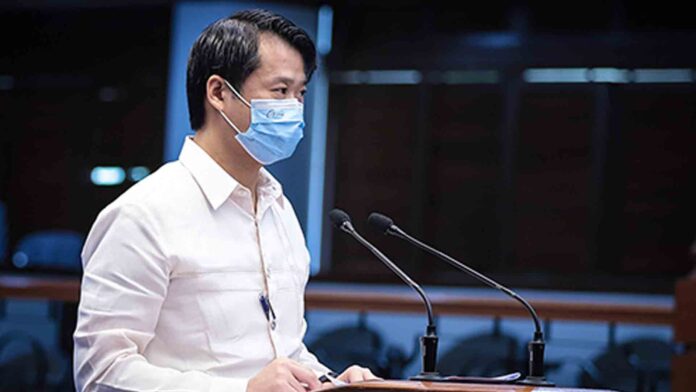“Kahit tuluyan na nating masugpo ang COVID-19, patuloy pa rin tayo sa pagtugon sa mga pinsalang dinulot ng kawalan ng face-to-face classes. Bukod sa pag-urong ng kaalaman, kabilang din dito ang pag-akyat ng mga kaso ng karahasan, pang-aabuso, at ang pagdami ng mga batang ina,” said Senator Win Gatchalian, who has long been advocating localized limited face-to-face classes to hasten learning recovery.
On Tuesday, the Senate has adopted Senate Resolution (PSN) No. 663 taking into consideration PSN 668, which Gatchalian sponsored and co-authored, recommending the resumption of physical learning through the immediate launch of the pilot testing of localized limited face-to-face classes in low-risk areas identified by the Department of Education (DepEd).
The adopted resolution notes that the participation of learners will be voluntary and with express permission by their parents or guardians. It will also help the DepEd, in coordination with the Department of Health (DOH) and the Inter-Agency Task Force on the Management of Emerging and Infectious Diseases (IATF-EID), in setting specific standards and health protocols. These include the provision of safe learning facilities and public health supplies such as adequate supply of safe water, sanitation areas, hand washing stations, soap, alcohol, and other cleaning materials.
To share responsibility with the local government units (LGUs) and ensure that pilot tests are conducted on a case-to-case basis, the adopted resolution assigns to the Provincial School Board, the City School Board, and the Municipal School Board the task of assessing and recommending whether to reopen schools, adopt selective or localized lockdowns, and resume face-to-face classes in their respective localities, taking into consideration local conditions and resources.
Aside from Gatchalian, the Senate resolution is authored by Senate President Vicente Sotto III, and Senators Maria Lourdes “Nancy” Binay, Francis “Kiko” Pangilinan, Grace Poe, Pia Cayetano, Joel Villanueva, and Sonny Angara.
The Chairman of the Senate Committee on Basic Education, Arts and Culture said that the quality of distance learning remains hounded by challenges such as the lack of adequate preparation, as well as expensive and unreliable information and communications technology (ICT) services.






